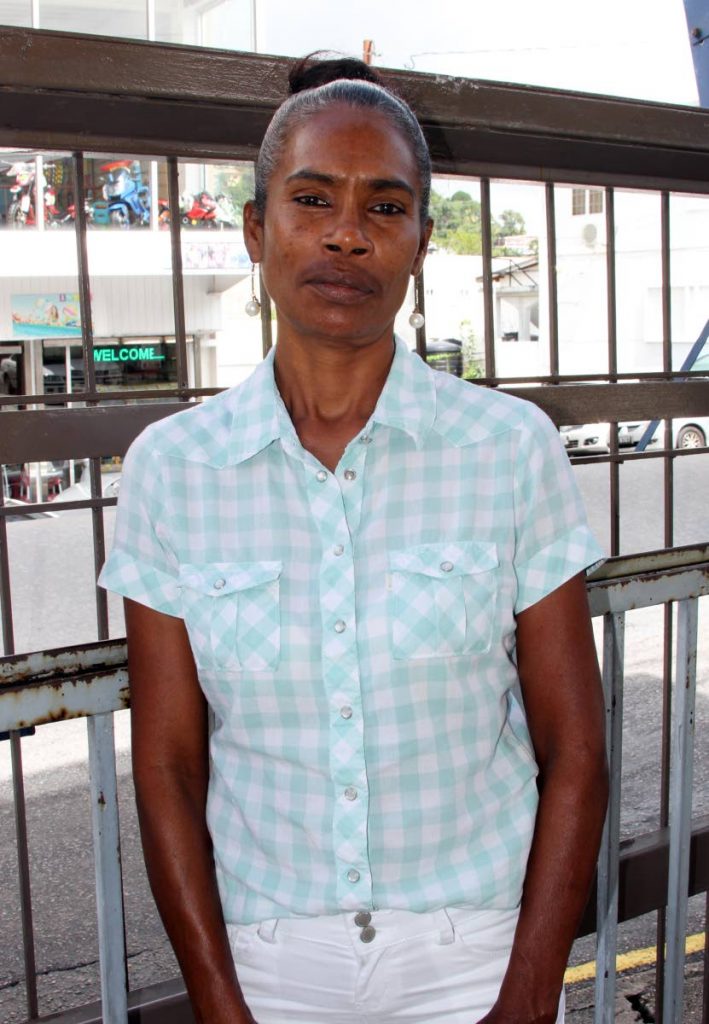GANJA TRAP: Convictions stand in way of jobs, US visas

Camilla "Billy" Pierre is among some 80,000 people convicted under the Dangerous Drugs Act for small amounts of marijuana. With the enforcement of the changes to the legislation she is now hopeful she can have a fresh start and wipe the slate clean, erasing her criminal record.
Her conviction proved to be a barrier to get a proper job and a visa to travel to the United States (US).
"I only realised that the penalty was attached to my fingerprints when I went to get a certificate of good character," Pierre, 52, of Penal said. "Only when I applied for a job, I realised that the conviction was attached to my fingerprints. I thought something so trivial would not be on my record."
Pierre was convicted of having 23 grammes of marijuana in 2014. She paid the fine of $7,500 imposed by a Siparia magistrate.
"I want that conviction erased really bad, so I can get a certificate of good character and get a proper job. When you have a conviction, people look at your real different. Even if you have to get a security work, you have to get a certificate of good character."
Connell Niranjan, 30, of Rio Claro, has encountered a similar experience.
Niranjan is a supply chain assistant employed with the South West Regional Health Authority. His conviction stems from an incident in 2016 when police found a grinder, a device used to crush marijuana before smoking, in his car. He was fined $1,000 for the offence and allowed two weeks to pay. In default, he had to serve two months in jail. He paid the fine.
"When I went to apply for my US visa, I was rejected,” Niranjan told Sunday Newsday. “I believe it was as a result of my conviction. I believe that should not have been a criminal charge. I did not know having a grinder was illegal. I will be trying to find out how to remove this conviction. I want to go back and try and get my visa."
The US Embassy has publicly noted that people applying for a visa must disclose their past convictions even if they were expunged from their criminal record. It noted that prior arrests and convictions, even if expunged, could still lead to visa ineligibilities,
The Office of the Attorney General (AG) has filed litigation in the High Court seeking to get information about the number of people who would be entitled to have their matters discharged or expunge their criminal records.
A statement for the AG's office said it successfully obtained all the orders it sought from the court, including the potential of thousands of people now being entitled to have their criminal records expunged and to make applications for pardons before the Mercy Committee.
There are two categories of people who stand to benefit from the amended law – those who were convicted of having not more than 60 grammes of marijuana or not more than ten grammes of cannabis resin and whose sentences have not yet been completed, and those charged with a similar offence but not yet convicted.
At last count, there are 699 people awaiting trial in various magistrates’ courts across the country who fall within the listed offence. That figure will likely increase as more enquires are done.
For the former group, they would have to make an application to the Court of Appeal to extend the time to file an appeal against their sentence and conviction, as allowed by Section 130 (A) of the Summary Courts Act.
Someone convicted in the magistrates' court has 14 days in which to appeal. The law allows for someone to challenge their conviction and sentence outside that window once the sentence has not yet been served.
That application comes up for hearing before a single judge, sitting in chambers, and an attorney representing the prisoner can at that stage make an application for bail pending the hearing of the appeal. A request to have the matter determined expeditiously can also be made then.
Ravi Rajcoomar, one of the lawyers retained by the AG's office to resolve these matters, suggested this was a convenient and quick way of getting a case resolved.
For those whose sentences have already been served, two applications must be made to the Office of the Commissioner of Police (CoP) in writing: one to remove their fingerprint records from the database of the Police Service fingerprint registry, and another from the criminal record database.
The attorney suggested that those people write to the CoP to remind him of his duty under the amended legislation.
Once that was done, such people must now make an application for a pardon to the Ministry of National Security attaching a transcript of the proceedings, a copy of the magistrate's extract, records that their fingerprint and criminal record had been expunged from the police database.
That information collated by the ministry will then be sent to the Mercy Committee, which will consider the application and make a recommendation to the President.
The Mercy Committee, which is chaired by the Minister of National Security, comprises the AG, the Director of Public Prosecutions and not more than four other members appointed by the President, after consultation with the Prime Minister and Leader of the Opposition.
Someone who is charged and convicted for other offences would not be entitled to the benefits of the amended law.

Comments
"GANJA TRAP: Convictions stand in way of jobs, US visas"